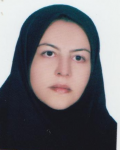| نویسندگان | _ |
|---|
| نشریه | Organic process research & development |
|---|
| شماره صفحات | 1321-1332 |
|---|
| شماره سریال | 23 |
|---|
| شماره مجلد | 7 |
|---|
| نوع مقاله | Full Paper |
|---|
| تاریخ انتشار | 2019 |
|---|
| رتبه نشریه | ISI |
|---|
| نوع نشریه | الکترونیکی |
|---|
| کشور محل چاپ | ایران |
|---|
| نمایه نشریه | JCR،Scopus |
|---|
چکیده مقاله
A novel water-dispersible magnetically recyclable Pd heterogeneous catalyst, denoted as Pd-γ-Fe2O3-2-ATPTEG-
MME, was initially synthesized and then characterized by diverse methods such as FT-IR, TEM, TGA, XPS, VSM, ICP,
and elemental analysis. The new catalyst was utilized as a water-dispersible/magnetically separable Pd heterogeneous catalyst for
C−C cross-coupling reactions including cyanation of aryl halides, fluoride-free Hiyama and Suzuki reactions in neat water. By
using this approach numerous arylcyanides and biaryls were synthesized in good to high yields via the reaction of aryl iodides,
bromides, and chlorides (far more extensively available and cheaper than aryl iodides and bromides) with K4[Fe(CN)6]·3H2O,
triethoxyphenylsilane, or phenyl boronic acid, respectively. The presence of triethylene glycol tags with hydrophilic character on
the Pd-complex supported on magnetic nanoparticles provides dispersion of the catalyst particles in water, which leads to both
higher catalytic performance and also facile catalyst recovery and reuse by successive extraction and final magnetic separation.
Using water as a green solvent, high turnover number (TON), facile catalyst recovery and reuse, simple workup, and not
requiring any additive make this method an ecofriendly protocol for the C−C cross-coupling reactions.
لینک ثابت مقاله
